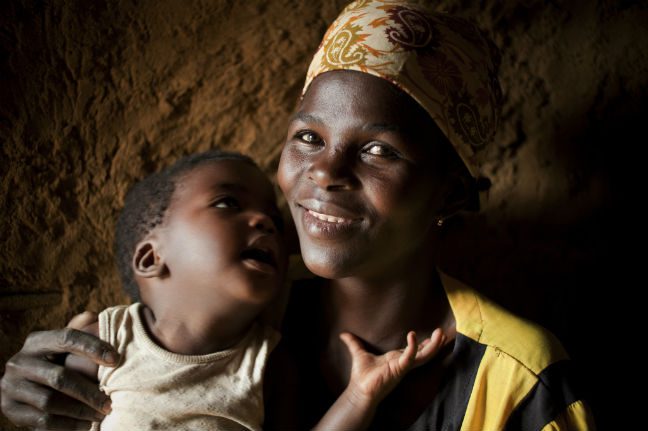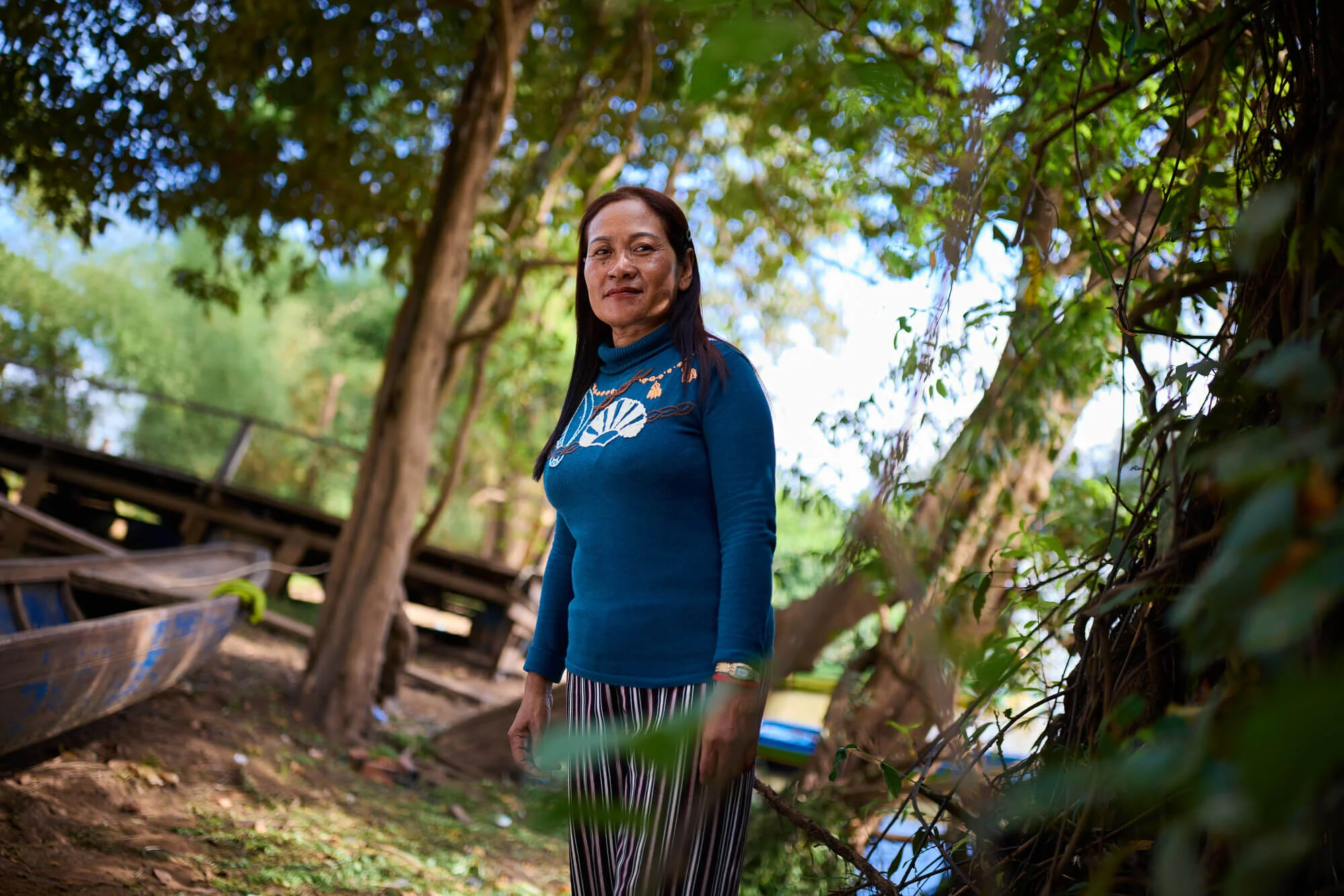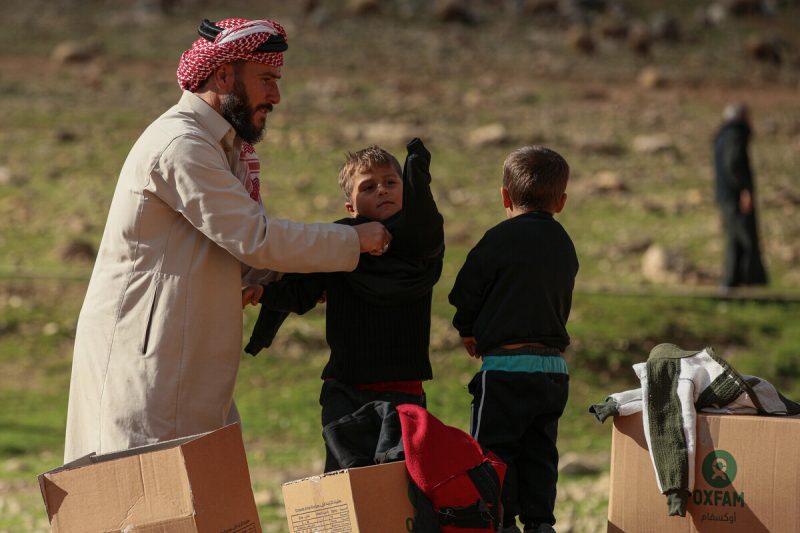In Mozambique, families depend mostly on crops for survival. Besides growing food to consume at home, the produce is a valuable source of income. But in a country recognised as one of the most disaster prone countries in the world, regular drought can mean severe hunger for entire communities.
In the poorest and hardest hit areas of Mozambique, men often leave the family home to migrate to surrounding countries to look for work. It was in these circumstances that Tereza’s husband died as he attempted to cross the South African border — his last option to provide for his family.
Today, Tereza lives in Bulangueti village. Her home is about a 10 minute drive from the main road. It’s surrounded by trees and feels very secluded. Her only neighbour is her mother-in-law; since her husband died, Tereza has lived alone with her four children.
At night they sleep in a small round hut with mud walls and share just one blanket between them. Life here is very basic, Tereza lives from day to day not knowing where the next meal will come from.
“Children don’t understand. When they want something to eat I am the one who has to worry about it. The grown ones do complain if they are hungry and the little ones cry. I tell them to keep quiet and wait until I prepare the food. The older ones do keep quiet because they understand, but the little ones may cry because they don’t know that I don’t have money. They just carry on crying,” said Tereza.
Tereza has a field in which she grows maize but it doesn’t produce enough to last her and her children all year. When food runs low, Tereza turns to burning charcoal and selling it by the side of the road as a source of income. Making charcoal is tough work, unpredictable and making Tereza sick.
“Selling charcoal doesn’t help much, however I do it to make a little money to buy food so that we don’t die of hunger. I hope that in the coming year the rains will fall.
I do it to make a little money to buy food so that we don’t die of hunger.
“It is very preoccupying when I go to bed without eating — I think about the bag of charcoal that I left on the side of the road — maybe no one has bought the bag yet and that is very worrying. I don’t dream much but when I’ve been to drop some bags of charcoal, I will dream that my charcoal is sold. The same scenario plays out in my mind over and over again, and I wake up thinking that I heard a car stop to buy charcoal.
As a single parent with little income — and with almost no access to social services or infrastructure — hunger is a daily reality for Tereza and her children.
“Hunger is a major problem, that’s why I chop trees to make ends meet. It’s overwhelming to think about hunger. As you can see I am the father and mother of my children and each child looks at me for support. I have to provide for all of us; food, clothing and school books; it’s very difficult.”
“I would like my children to grow and study hard so that they can have good jobs and maybe they will look after me one day. As you can see I am suffering with them, it would be disappointing if they dropped out of school as they will suffer the same way I do.”
By introducing the tools and skills Tereza needs to grow a garden in the desert, you could help create a future where everyone has enough to eat.




